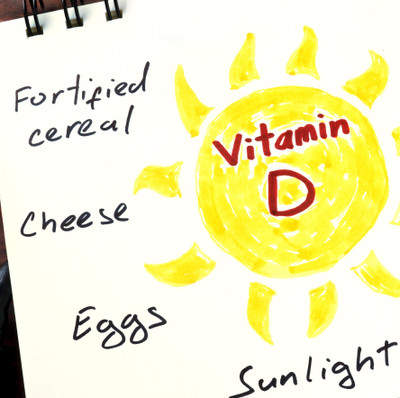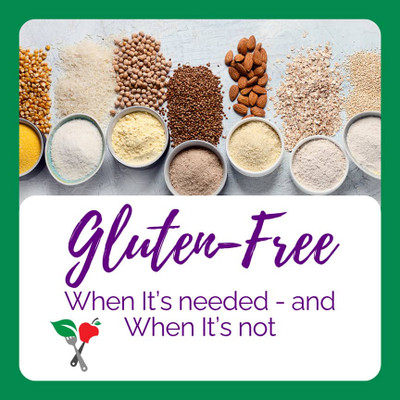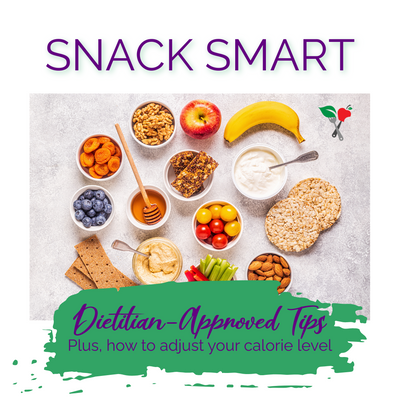Vitamin D Deficiencies and COVID-19
Vitamin D has been gaining a lot of traction over the last few years. Previously vitamin D was mainly thought of as an important nutrient for bone health and the prevention and treatment of osteoporosis. Now, the sunshine vitamin has been popping up as being possibly connected to risk for cancer, diabetes, and certain autoimmune conditions such as multiple sclerosis. The newest research is suggesting that Vitamin D may help protect against respiratory infections, in particular, COVID-19. Is vitamin D the miracle supplement we all need to start taking, or does all the hype not add up?
Vitamin D is unlike any other vitamin since it is a hormone. When our skin is exposed to sunlight our bodies make vitamin D. It is generally recommended to achieve 5-10 minutes of sun to the arms, legs, or back without sunscreen to achieve adequate amounts of vitamin D. For individuals with darker skin, it may take slightly more time in the sun to achieve adequate levels. Being a fat-soluble vitamin, vitamin D is carried dissolved in fat in food and into the bloodstream. It also attaches to substances within your body made of fat, making it important to have a moderate amount of dietary fat in the diet. If you are taking a supplement or relying on food sources, taking vitamin D with a meal or snack containing some fat will help improve absorption.
Vitamin D has many roles in the body, including:
- Promoting absorption of calcium and phosphorus
- Regulating the amount of calcium in the blood
- Keeping bone and teeth strong
- Reducing fracture and osteoporosis risk
- Helping to regulate cell growth
- Transporting messages between the brain and every part of the body
- Impacting immune function
- Controlling the body’s inflammatory response
Before the coronavirus pandemic, vitamin D was identified as a ‘nutrient of concern’ by the Dietary Guidelines for Americans. This means that the nutrient is low enough in American diets that it is considered a public health concern. Over the last year, vitamin D has been added to the new format of the nutrition label to help consumers become more aware of their intake of this vital vitamin. The push for identifying individuals who are deficient in this vitamin and to encourage adequate intake started well-before COVID-19. However, there is an interesting similarity among the individuals who are more at risk for COVID-19 and those that are more likely to be vitamin D deficient.
It is estimated that about 42% of American adults are deficient in vitamin D. Research has found that obese individuals and those with diabetes are most likely to be vitamin D deficient. These conditions also have a higher mortality rate with COVID-19 infection. African Americans, Hispanics, individuals without a college education, high blood pressure, overall poor health, low HDL (good) cholesterol, breastfed infants, elderly, and those who do not drink milk daily are also more likely to have low levels of vitamin D. Black and Hispanic Americans also have a disproportionate chance of being deficient with approximately 82% and 69% with clinically low levels, respectively.
The risk comes from either poor sources of vitamin D in the diet, lack of daily sunshine, or physiological changes in the body that lead to the body being less able to produce vitamin D. For example, the skin in older individuals is less efficient at producing vitamin D and the kidneys may be less able to convert inactive vitamin D to its active form. Obese individuals may be more likely to be deficient because the excess body fat binds to vitamin D making it less available to the body.
Per the CDC, other factors that decrease the amount of vitamin D a person can make from sunlight include:
- Living at high latitudes, particularly during winter months
- High levels of air pollution
- Dense cloud covering
- Amount of clothing covering the skin
- Darker skin types
- Use of sunscreen
Research is currently ongoing to determine the relation of vitamin D and risk for and severity of COVID-19 infection. Most of the research to date does show a correlation between the two but does not prove that vitamin D deficiency is the cause of coronavirus infection or leads to a more critical case. Larger studies will be needed to determine the link, but much of the results thus far show the sunshine vitamin has a positive effect.
Vitamin D is thought to possibly protect from COVID-19 because of its role in the immune system and boosting defenses against viruses and bacteria. A recent study from October 2020 in Spain looked at the role of vitamin D status in COVID-19 patients and found that 82% of 216 hospitalized patients had vitamin D deficiency. They also found that those with low vitamin D levels had elevated inflammatory markers such as ferritin and D-dimer, which is important as a higher inflammatory response has been linked to poorer outcomes with coronavirus infection.
Studies show a beneficial effect of vitamin D on the immune system, especially when it comes to protection against infection. It has been determined that people with lower vitamin D levels may be more susceptible to upper respiratory tract infections. One meta-analysis found that people who had low levels of vitamin D and started taking supplements were less likely to develop acute respiratory tract infections than those who didn’t take a supplement.
Vitamin D also has a large impact on the body’s inflammatory response which may offer protection from more severe cases of the virus. Vitamin D supplements can increase T-regulatory lymphocytes. Low levels of T-regulatory lymphocytes have been reported in many COVID-19 patients. Researchers suggest that inadequate vitamin D levels are associate with the body’s inflammatory response and a significantly increased risk of pneumonia and viral upper respiratory tract infections.
One last study published in September 2020 in PLOS ONE, found a slightly higher percentage of individuals with inadequate vitamin D levels tested positive than those with an adequate vitamin D status. About 8% of 27,870 people with adequate vitamin D were positive, while 12.5% of 39,190 individuals with a deficiency had a positive COVID-19 test.
While a number of these studies had limitations with their results and cannot point conclusively that a vitamin D supplement will prevent coronavirus infections, there is still a lot of good research continuing and highlighting how nutritional status and treating deficiencies is important for a strong immune system and improved outcomes with infection.
At Seattle Sutton’s Healthy Eating, we often discourage relying on supplements for good health. However, if someone is deficient in vitamin D it can be difficult to raise levels when focusing on food sources alone. Consulting with your physician to determine if a supplement is right for you would be the proper route to take. In the United States, the National Institute of Health recommends children >1-year-old to adults up to 70 years old to aim for 600 IU or 15 mcg of vitamin D per day. Individuals who are older than 70 years old need 800 IU or 20 mcg daily. Their recommendation is to obtain this with a combination of diet, sunlight, and supplements.
Since vitamin D is stored in the body, it is possible to take too much vitamin D and for it to become dangerous. However, it is near impossible to reach vitamin D toxicity when focusing on diet and sunlight. Vitamin D toxicity almost always occurs from the overuse of supplements. Symptoms of too much vitamin D include nausea, constipation, poor appetite, weakness, and weight loss. This highlights why it is strongly encouraged to talk with a medical professional about if you need a supplement and in determining the proper dosage for you.
Vitamin D deficiency is defined as a serum 25-hydroxyvitamin
D concentration of less than or equal to 20 ng/mL and levels of 50 nmo/L or
more are considered adequate for bone and overall health in healthy individuals. If you are found to
be deficient, you may be encouraged to take a dose higher than what is
recommended by the NIH to help increase your levels. A daily supplement of
1,000-2,000 IU is considered safe for most people. If you have an infant that
is exclusively breastfed, it is recommended by the American Academy of
Pediatrics to provide a vitamin D supplement of 400 IU per day in the first few
days of life.
When looking at vitamin D in the drug store, you may notice that there are two different options: vitamin D2 or vitamin D3. Rest assured that both vitamin D2 and vitamin D3 will both increase the level of vitamin D in the blood. However, D3 is more effective in raising the circulating form of vitamin D in the blood and keeping your levels elevating for a longer period of time.
Vitamin D is not naturally present in most of our food supply posing
another difficulty in getting adequate amounts. Certain food items are
fortified with vitamin D to help provide more of this vitamin to the general population.
Food sources include:
| Item | Portion Size | Amount of Vitamin D |
| Brown Mushrooms | 1 cup | 1100 IU |
| White Mushrooms | 1 cup | 976 IU |
| Cooked Salmon | 3 oz. | 570 IU |
| Cod Liver Oil | 1 tsp | 450 IU |
| Canned Tuna in Oil | 3 oz. | 228 IU |
| Cooked Halibut | 3 oz. | 196 IU |
| Fortified Yogurt | 8 oz. | 127 IU |
| Fortified Soy Milk | 1 cup | 119 IU |
| Skim Milk | 1 cup | 115 IU |
| Fortified Orange Juice | 1 cup | 100 IU |
While the research on vitamin D and COVID-19 is still limited, this information is a good reminder that identifying and treating nutrient deficiencies is important for good health. Knowing that vitamin D is a ‘nutrient of concern’ and the important functions this vitamin has in our bodies helps us to regain focus on getting a variety of foods with vitamin D in our regular diet, as well as making time each day to get some sunshine. Now maybe the time to have a conversation with your physician about having your vitamin D levels checked and to determine if you need to develop a plan to increase your vitamin D. A combination of sunshine, healthy foods, and possibly a vitamin D supplement may not be a magic bullet against the coronavirus but it definitely won’t be a negative for our health.

Interested in eating healthy? Hungry for more?








 Weight Loss
Weight Loss Health & Wellness
Health & Wellness Diabetes
Diabetes Heart Health
Heart Health Motherhood & Family
Motherhood & Family Dietary Restriction
Dietary Restriction Other Health Conditions
Other Health Conditions About SSHE
About SSHE


